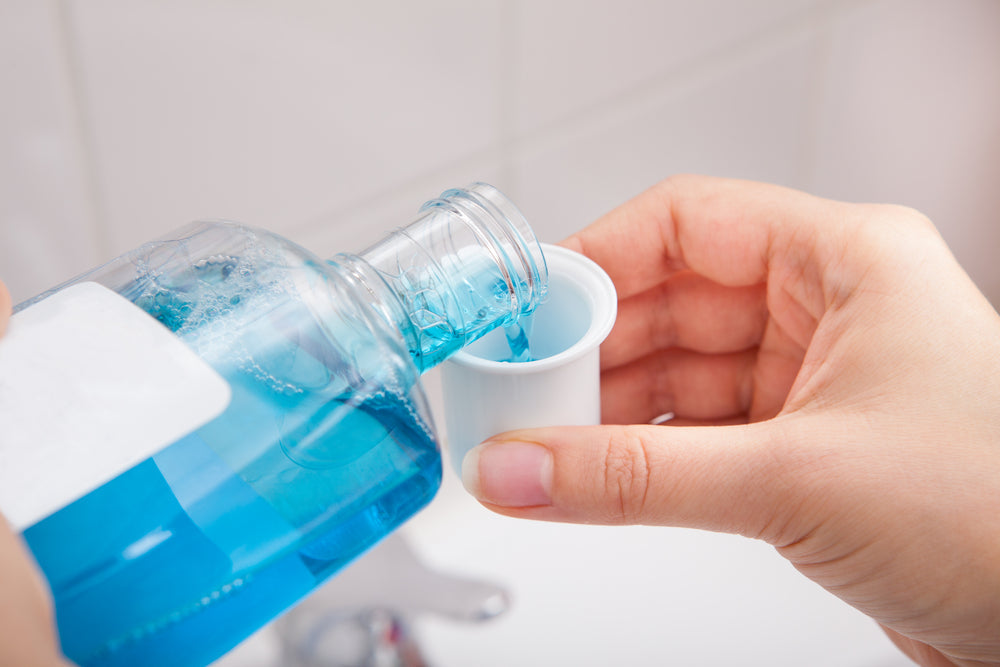Is Mouthwash Good For You
Is Listerine Good For You

Mouthwash, touted for its ability to freshen breath and kill germs, has been a staple in oral hygiene routines for decades. Yet, recent research has shed light on the potential harm lurking behind those minty fresh swishes.
A Brief History of Mouthwash: The use of mouthwash dates back centuries, with ancient cultures employing various concoctions to cleanse and freshen the mouth. In ancient Rome, for example, people rinsed with a mixture of wine and herbs to kill bacteria and mask bad breath. Similarly, the ancient Egyptians used mixtures of herbs and spices dissolved in wine for oral hygiene purposes.
Fast forward to the 19th century, and mouthwash began to take a more recognizable form with the introduction of antiseptic solutions containing alcohol and other chemicals. Listerine, one of the first commercially available mouthwashes, hit the market in the 1870s as a surgical antiseptic but was later marketed as a cure for bad breath, solidifying the idea of mouthwash as a daily oral hygiene product.
The Mouth's Microbiome: The human mouth is home to a diverse ecosystem of bacteria, fungi, and other microorganisms collectively known as the oral microbiome. This microbiome plays a crucial role in maintaining oral health by helping to break down food particles, regulate pH levels, and protect against harmful pathogens.
However, disruptions to the delicate balance of the oral microbiome can have significant consequences for oral health. Certain bacteria, such as Streptococcus mutans, are associated with tooth decay and gum disease when they proliferate unchecked.
Effects of Mouthwash on the Oral Microbiome: While mouthwash is marketed as a tool to kill bacteria and freshen breath, the reality is that it often disrupts the balance of the oral microbiome. Many commercial mouthwashes contain antibacterial agents such as alcohol, chlorhexidine, and triclosan, which indiscriminately target both harmful and beneficial bacteria.
Repeated use of antibacterial mouthwashes can lead to a decrease in beneficial bacteria, allowing harmful bacteria to thrive and potentially contributing to conditions like halitosis, cavities, and periodontal disease. Additionally, the overuse of mouthwash may lead to the development of antibiotic-resistant bacteria, further complicating oral health.

The Dangers of Alcohol-Based Mouthwash

Alcohol-based mouthwashes, in particular, come with their own set of risks. Alcohol, often in the form of ethanol or isopropyl alcohol, is a common ingredient in many commercial mouthwashes due to its antiseptic properties. However, alcohol can also have a drying effect on oral tissues, leading to irritation, inflammation, and even tissue damage with long-term use. Furthermore, alcohol-based mouthwashes can cause a stinging sensation when swished, which may be particularly uncomfortable for individuals with sensitive gums or oral ulcers. This stinging sensation is often mistaken for a sign of efficacy, but in reality, it is simply a result of the alcohol irritating the delicate tissues of the mouth.
Link Between Mouthwash and High Blood Pressure: Recent studies have raised concerns about a potential link between regular mouthwash use and high blood pressure. Research published in the journal Hypertension found that individuals who used mouthwash twice daily were at a significantly higher risk of developing hypertension compared to those who used mouthwash less frequently or not at all.
The exact mechanism behind this association is still unclear, but some researchers speculate that the antibacterial agents in mouthwash may disrupt the oral microbiome in a way that affects blood pressure regulation. Additionally, alcohol-based mouthwashes may contribute to hypertension by increasing alcohol absorption through the oral mucosa.
is therabreath good
Therabreath, a popular brand of oral care products, has gained recognition for its purported ability to combat bad breath and promote overall oral health. However, it's important to note that some formulations of Therabreath contain menthol, an ingredient that has been linked to potentially disrupting the delicate balance of the oral microbiome. While menthol is known for its refreshing properties and ability to provide a cooling sensation, research suggests that it may also have antimicrobial properties that can affect both harmful and beneficial bacteria in the mouth. Therefore, while Therabreath may offer short-term relief from bad breath, the presence of menthol raises questions about its impact on the oral microbiome and overall oral health in the long run. It's advisable to exercise caution and consider alternatives that prioritize maintaining the balance of the oral microbiome without potentially harmful ingredients like menthol.
While mouthwash may seem like a harmless addition to your oral hygiene routine, it's essential to be aware of the potential risks associated with its use. From disrupting the delicate balance of the oral microbiome to contributing to high blood pressure, the hidden dangers of mouthwash are cause for concern.
Instead of relying solely on mouthwash for oral hygiene, consider incorporating other strategies such as regular brushing and flossing, maintaining a balanced diet, and visiting your dentist regularly for check-ups and cleanings. And if you do choose to use mouthwash, opt for alcohol-free formulas or natural alternatives to minimize potential harm to your oral and overall health. Remember, a healthy mouth is a key component of overall well-being, so take care to nurture it wisely.






Share:
Is Tongue Scraping Good For You
Filtered Water For Cats